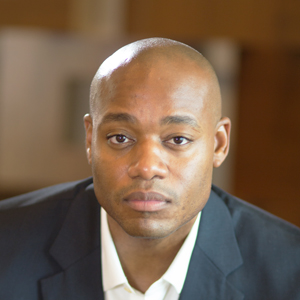

|


Hacker, Hoaxer, Whistleblower, Spy.
Critical advice for protecting your organization from hackers stealing your data, turning it into a hostage situation and a media circus
The world has two types of companies: those that know they’ve been hacked, and those that do not. You cannot stop every cyberattack, but you can prepare for them and bounce back as quickly as possible.
In this keynote, Dr. Summers, one of the world’s leading ethical hackers and cyber strategists, describes how a hacking event can ruin your organization and shares the latest research and advice for successful cyber crisis management. He will provide guidance and insights on all issues pertaining to hackers and their impact on organizations and society at large.
Dr. Summers can be introduced as “a hacker with a PhD”. As a researcher, his focus is on the cognitive psychology of hackers, in other words he can tell us How Hackers Think. Advisor of many Fortune 500 companies and organisations in the public sector worldwide, he speaks regularly at prestigious academic institutions. He developed cyber security courses as well as innovative and entrepreneurial programs.
As President of Summers & Company, a cyber strategy and organizational design consulting firm, Dr. Summers helps clients understand cyber security risks within their organizations.
At the iSchool (University of Maryland), he teaches cybersecurity courses as well as developing innovative and entrepreneurial programs and opportunities that enable students and faculty to engage with the community in new ways.

Coordinated crisis communication: learned lessons in Swedish governments, agencies and society
In Sweden, crisis managers and crisis communicators are making a lot of progress when it comes to communicating in crises. Since the 2004 Indian Ocean earthquake and tsunami, the Swedish society, its agencies, counties and municipalities have been developing routines, common grounds and networks for coordinating the crisis communication efforts.
Which experiences have been important? How do these affect the coordinated crisis communication today? These are some of the questions that this keynote will try to answer. The keynote will also describe in which situations is it extra important to coordinate communication to the public and give some examples of how this can be done.
Stina Wessling has been working in crisis communication since 1999, and has written a handbook in crisis communication for the public sector. She is a former police officer who got a university degree in media- and communication studies and is now a consultant in crisis communications.

Effective communication during Brussels Lockdown and other elevated terrorist threats and attacks in Belgium
How to inform the public about an unknown and invisible threat? What are society’s expectations when a severe terrorist threat holds on for days, or even for weeks? November 2015 was overshadowed by the IS attacks in Paris. Merely a few days later, Brussels was the subject of an elevated terrorist threat. Severe security measures were taken, and the security warning level was raised to the highest mark.
In an attempt to inform civilians in the most optimal way concerning the precautionary measures taken by the government, Belgium’s Federal Crisis Center successfully applied the Work Process Crisis Communication (WPCC) methodology. WPCC starts with analyzing the (social) media as a way to make informed decisions about the communication strategy and, subsequently, to elaborate on a written and spoken output.
For more than a week, 24 hours a day, the Federal Crisis Center at Belgium’s Home Office had been organizing strategic coordination meetings, managed multiple collaborators, handled severe media pressure, addressed thousands of incoming phone calls on their information number, and informed a massive number of visitors on their online platforms. Although the WPCC was put under severe pressure, it successfully resisted the test.
Peter Mertens is spokesman and communication team coordinator of the Belgian Federal Crisis Center. He will share his experiences and lessons learned from the first row during the recent Brussels Lockdown and related terrorism threat events.